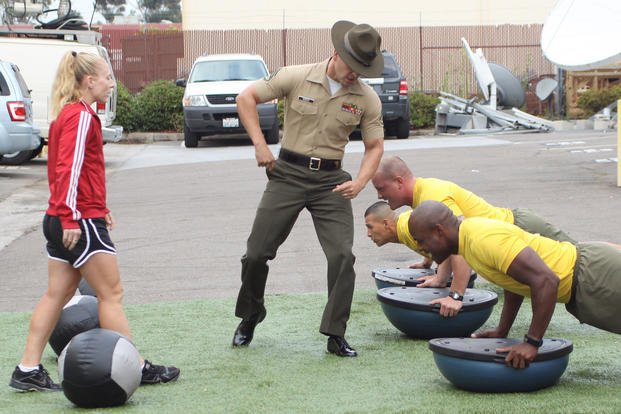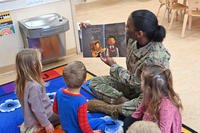Whether the military is tougher than college depends on the individual. A life of service may prove to be extremely difficult for some and an ideal fit for others, just as college life may be academically stressful and challenging to some and easy to others. This issue can be debated many different ways, but this opinion piece can be justified objectively with the following statistics:
- Nearly 70% of high school graduates entered college last year.
- Roughly 75% of young men and women ages 17-24 would not be eligible for military service for the following reasons:
- 31% are too overweight to qualify for military service.
- 32% of all young people have other health problems that will keep them from serving.
- Roughly 15,000 fail physical fitness standards because of their weight, strength or endurance annually.
- 10% have a criminal record that disqualifies them from service.
- 30% have a history of drug use that would disqualify them.
- 25% lack a high school diploma.
- 23% do not score highly enough on the ASVAB test.
Some colleges have a less than 5% to 10% acceptance rate, and being fit with poor grades would disqualify many for college as well. Also, the U.S. Military Academy (West Point), Naval Academy and Air Force Academy have an acceptance rate between 8% and 12%. Roughly less than 30% annually get accepted into ROTC programs. So military colleges are also tougher to get into than civilian college overall.
Stress is stress, and perception is reality. Hormonally speaking, it does not matter whether you pull an all-nighter to finish a term paper or stand guard duty overnight protecting your forward operating base.
The stakes are greatly different, though. You pass or fail a term paper. In the military, passing and failing can mean the difference between living and dying, or being injured. When put into context, the potential consequences of military stressors far outweigh those of a college student.
There are also subjective grading criteria that show military life is harder than college. However, there are many ways that college life can be just as difficult and stressful (or more so) for the young American student.
- Paying for college is highly stressful to any student not on scholarship. Any educational training in the military is paid for while you receive a salary, and you earn money for college through the GI Bill.
- Regardless of where you go, leaving home for the first time is stressful. Although the constant negative feedback for the military recruit is high, many young people fail with this new stressor of leaving home, whether in advanced military selections or attending college courses.
- The chances of post-traumatic stress and work stress are greater within the military; however, graduating college relieves stress immensely in the young graduate. Now the new stress of finding a job begins. Depending upon the difficulty of the major and how hard the student worked in college, the job hunt stress may be less than average. But earning that level of a degree required tremendous effort, persistence and never-quit attitude, similar to many military training programs.
Skills, discipline and experience in the military and college
- Responsibilities. In the military, young men and women are given great responsibilities that often have failure consequences that include injury or death, the loss of millions of dollars of property and equipment, or mission failure. Nothing in college compares to that level of responsibility.
- Discipline. To be a new college student requires discipline if you want to stay a college student. Finding time to study, complete assignments and perform at a high standard as a student while the temptations to party are all around takes discipline. The military instills discipline. College does not, although you must have some to succeed.
- Skills received in the military. Many of its young enlisted members train in highly skilled techniques in STEM (science, technical, engineering, math) and high-paying vocational skills (electrician, plumbing, HVAC, mechanical, welding). Also, a four-year enlistment can yield two or more years of free college credits that will transfer to most colleges while earning a paycheck. The military and college offer training in highly sought-after skills and education.
The goal of this piece is not to belittle either option. The military is a profession, not a job you do because you could not get into college. Service is a calling, and college or advanced education and skills should be a future goal of everyone, regardless of how it is achieved. Neither option makes you better than anyone else, and all options help our society advance, with the goal of raising everyone's quality of life.
Reference: Ready, Willing and Unable to Serve
Stew Smith is a former Navy SEAL and fitness author certified as a Strength and Conditioning Specialist (CSCS) with the National Strength and Conditioning Association. Visit his Fitness eBook store if you're looking to start a workout program to create a healthy lifestyle. Send your fitness questions to stew@stewsmith.com.
Want to Learn More About Military Life?
Whether you're thinking of joining the military, looking for fitness and basic training tips, or keeping up with military life and benefits, Military.com has you covered. Subscribe to Military.com to have military news, updates and resources delivered directly to your inbox.
















